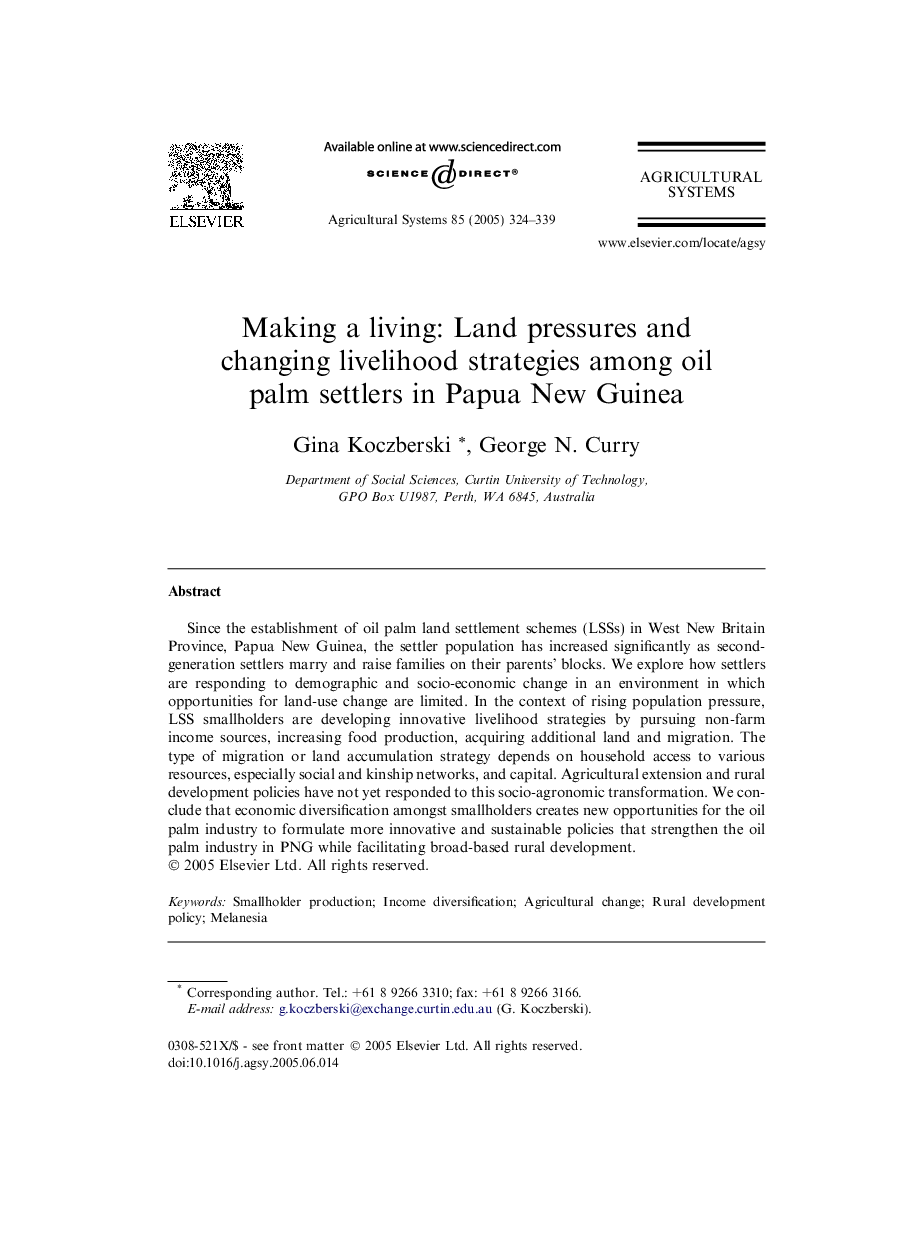| Article ID | Journal | Published Year | Pages | File Type |
|---|---|---|---|---|
| 9469190 | Agricultural Systems | 2005 | 16 Pages |
Abstract
Since the establishment of oil palm land settlement schemes (LSSs) in West New Britain Province, Papua New Guinea, the settler population has increased significantly as second-generation settlers marry and raise families on their parents' blocks. We explore how settlers are responding to demographic and socio-economic change in an environment in which opportunities for land-use change are limited. In the context of rising population pressure, LSS smallholders are developing innovative livelihood strategies by pursuing non-farm income sources, increasing food production, acquiring additional land and migration. The type of migration or land accumulation strategy depends on household access to various resources, especially social and kinship networks, and capital. Agricultural extension and rural development policies have not yet responded to this socio-agronomic transformation. We conclude that economic diversification amongst smallholders creates new opportunities for the oil palm industry to formulate more innovative and sustainable policies that strengthen the oil palm industry in PNG while facilitating broad-based rural development.
Related Topics
Life Sciences
Agricultural and Biological Sciences
Agricultural and Biological Sciences (General)
Authors
Gina Koczberski, George N. Curry,
